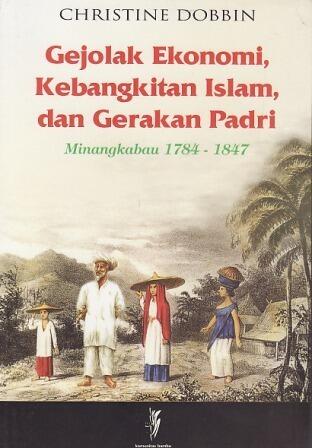
Gejolak Ekonomi, Kebangkitan Islam dan Gerakan Padri: Minangkabau 1784-1847
によって
Christine Dobbin
まだ評価がありません
History
形式
ペーパーバック
ページ数
416
言語
インドネシア語
公開されました
Jan 1, 2008
出版社
Komunitas Bambu
ISBN-10
9793731265
説明
Christine Dobbin explores the intricate connections between economic upheaval and the rise of Islamic revivalist movements in Minangkabau during the late 18th to mid-19th centuries. The book delves into the socio-political landscape of the region, where the Gerakan Padri emerged as a response to both economic challenges and a desire for religious reform. It highlights how these revivalist currents shaped communal identities and influenced the broader historical trajectory of Islam in Indonesia.
The narrative is rich with detailed analysis, providing insights into the motivations of key figures and the impact of their ideologies on society. Dobbin meticulously examines the interplay between local culture and external influences, illustrating how Minangkabau navigated the complexities of modernization while clinging to traditional values. Through this lens, readers can grasp the profound transformations that occurred during this pivotal period.
By situating the Padri Movement within the context of economic, political, and religious changes, Dobbin offers a nuanced understanding of the factors driving these historical shifts. The work stands as a crucial contribution to the study of Islamic movements in Southeast Asia, shedding light on how local responses to broader challenges shaped their religious and cultural landscape.
The narrative is rich with detailed analysis, providing insights into the motivations of key figures and the impact of their ideologies on society. Dobbin meticulously examines the interplay between local culture and external influences, illustrating how Minangkabau navigated the complexities of modernization while clinging to traditional values. Through this lens, readers can grasp the profound transformations that occurred during this pivotal period.
By situating the Padri Movement within the context of economic, political, and religious changes, Dobbin offers a nuanced understanding of the factors driving these historical shifts. The work stands as a crucial contribution to the study of Islamic movements in Southeast Asia, shedding light on how local responses to broader challenges shaped their religious and cultural landscape.